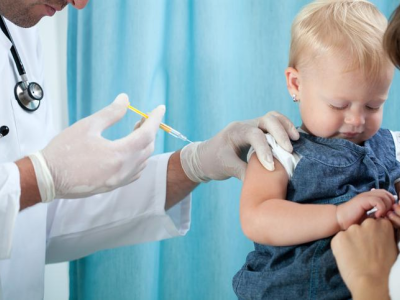Nov 12, 2004 (CIDRAP News) The World Health Organization's top influenza expert warned at the end of a 2-day international meeting today that governments need to fund the development of vaccines to combat a feared flu pandemic that could kill millions of people, according to news services.
"We would hope that one of the major messages from this meeting to governments, to support vaccine testing, is going to get across," said Klaus Stohr, head of the WHO's global influenza program, according to an Agence France-Presse (AFP) report.
Stohr spoke at a press conference after a hastily arranged meeting of about 50 officials from vaccine manufacturers, governments, and vaccine licensing agencies at WHO headquarters in Geneva, Switzerland, according to AFP. The agency, concerned that the widespread H5N1 avian flu in Asia could trigger a human flu pandemic, called the meeting mainly to discuss how to develop a vaccine for the virus.
The H5N1 virus has caused at least 44 cases of human illness in Asia, with 32 deaths. The virus has not yet shown an ability to spread readily from person to person, but flu experts fear that it could easily acquire that ability through mutation, possibly sparking a pandemic.
Stohr said about 11 million euros, or about $14 million, is needed in the short term to develop a candidate vaccine, but private companies are reluctant to invest that much, according to a Reuters report.
"Without money nothing is going to move with the pandemic vaccine," AFP quoted Stohr as saying.
In the United States, two companies have received federal contracts to make doses of a vaccine based on an H5N1 virus sample taken from a Vietnamese patient. The government contracted with Aventis Pasteur, Swiftwater, Pa., and Chiron Corp., Emeryville, Calif., last May to make 8,000 to 10,000 doses each. In September, the Department of Health and Human Services (HHS) awarded Aventis Pasteur a contract to make about 2 million doses. HHS officials have said that clinical trials of the vaccine would start late this year or early in 2005.
According to a Canadian Press (CP) report, Stohr predicted that up to 30% of the world's population could fall ill if a flu pandemic erupted and that 1% of patients would die. But he noted that in history's worst flu pandemic, the Spanish flu of 1918-19, 2.6% of patients died.
Stohr put the world's current production capacity for flu vaccine at about 300 million doses per year, which could possibly be stretched to 1.2 billion in an emergency, according to the AFP report.
According to the CP report, Stohr said there is "too little momentum" in the development of flu pandemic vaccines. "We have a unique window of opportunity, which is that we could now get our groundwork done . . . to ensure that when it matters most to do vaccine production it can happen immediately," he said.



















